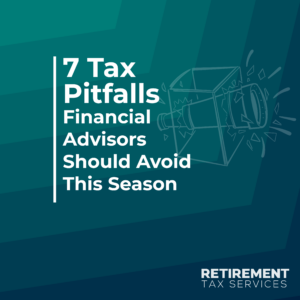Recommended Articles

Ask an Advisor: How Can Tax Rates Be Higher in Retirement Than Your Earning Years?
Required minimum distributions (RMDs) are certainly a reason that a person’s tax rate might go...
Read More
Ask an Advisor: I’m in the Highest Tax Bracket and ‘Plan to Be There Moving Forward.’ Should I Do a Roth Conversion?
If you ask some financial professionals, the answer to this question might be a resounding...
Read More
7 Tax Pitfalls Financial Advisors Should Avoid This Season
Some financial advisors may be tempted to wash their hands of taxes and leave them...
Read More
Is it too late to convert to a Roth?
There is also no earned income requirement to convert to a Roth. As long as...
Read More
